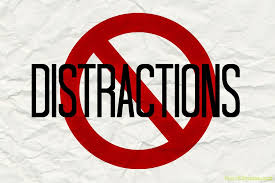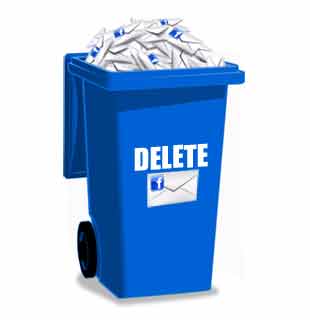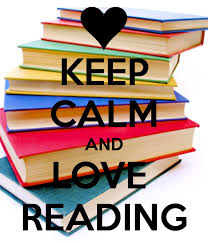Let us go through an exercise. Consider all your reading sessions during your day. Factor in all that you read: blog posts, magazine & newspaper articles, social network posts, books, novels, just about everything. On a scale of 1 to 10, how satisfying do your consider your reading sessions? Do you come away from each reading session having learnt something new and looking at the world or your career in a different perspective? Are your reading sessions pleasurable and relaxing, making you want to read on and on? Or are they rather stressful, making you shake your head and ponder how terrible the world is?
Do you read precise and succinct material, which powers up your brain in a matter of moments? Or do you wander from one post to another in a cobweb of hyperlinks, scroll through your feed up & down, flip through the pages of your book reading too much material, getting diverted and distracted too soon and finally giving up not particularly enjoying the experience?
If you do not get much out of your reading, it may be because you do not read what YOU WANT to read, but are rather reading what OTHERS LURE YOU to read. Fear not friend, as I will give you some simple tips to take back control of your reading and make you fall in love with this centuries-old activity all over again.
Step 1: Set themes / objectives for your reading sessions

This step is more important that it sounds and more difficult to implement than it looks. Narrowing down the field and eliminating distractions. Set a basic theme / objective for your reading session immediately before you start reading. This is especially true for the Internet. Books will not distract you away, unless they have QR codes, subscription discount coupons, URLs or Augmented Reality content. On Internet, distraction is everywhere, especially in the form of advertisements and suggestions. You have to be firm about your goal.
E.g. goals might be ‘I want to learn about the history of Varanasi during the next hour’. ‘Over the next 3 hours, I want to find out what the morning routines of the CEOs of the world’s top 25 companies look like’. Well, here is how distractions show up in the form of suggestions: ‘Narendra Modi to contest 2014 elections from Varanasi’, ‘Tesla CEO Elon Musk claims that self-driving cars are inevitable’. Here is where it takes extreme firmness. It doesn’t matter how much you like Narendra Modi, BJP, Elon Musk, Tesla or self driving cars, your rock-solid commitment should be towards the history of Varanasi and the morning routines of top CEOs. Period.
If you do encounter distracting links you consider relevant and would like to read them later, I suggest tools later in the article (step 4).
Step 2: Be aware of what you are reading
The next step in the process of taking control is to actually watch what you read. You need to carefully pay attention to the content you consume and note down if it is relevant to you. Journaling what you read is a good way to review what you are doing. Write down in a notebook, use your browser history or use an Excel sheet. The journal will give you a good idea of what you read throughout the day.
It will be additionally helpful if you note down the amount of time you spent on each content, at what time of the day you read each, from which source, in which location and on a scale of 1 to 10, how much the content potentially improved your outlook. The process is quite tedious at first, especially in terms of breaking your flow of reading, but it will definitely make you aware of each content you read. It will make you take a couple of moments to actually be aware of what you are going to read and make you think whether you really will benefit from reading it. At the end of the day you will have insight-worthy data about your reading habits.
Step 2: Ask yourself the tough questions
With the records in place, you are now ready to ask yourself some questions about the quality of the content you are consuming. Are you binge reading celebrity news at the cost of your productivity? Are you staying up reading too late at the cost of your sleep? Are those news articles about hurricanes and terrorist attacks, sad though they are, directly relevant to you in any way and can you do anything about it? What would I lose if I stop reading mainstream news, other than the fact that I wouldn’t be aware of them?
There are many more creative questions you can ask based on your consumed content. Some of the questions that I have regularly been asking myself over time are: Is this source giving me enough good content to remain subscribed to? Do I benefit more from factual articles or expert opinions? How much of the content I read is timeless, evergreen and relevant forever?
Start 3: Ruthlessly eliminate

Remember, you want to read what YOU WANT to read, and not WHAT IS FED to you. So once you start noticing patterns in your reading habits that continuously divert you away from your reading goals, you need to eliminate the bogus sources without much second thought. By sources, I mean all the places which lead me to individual content. E.g. whom I follow on Twitter, Feedly feeds, magazines, etc.
1. Title and content don’t match
We start reading them because the title promises something, but the content is completely something else. I once started following the RSS feed of a famous tech blog. But it was publishing more articles about which Silicon Valley company was suing which other company. Needless to say, I chucked the feed out, never to return again.
2. Title and content match, but content is irrelevant or redundant
Some sources are good and the content is true to the title. However they are partial to certain types of content and over time drive away readers who are looking for more. E.g. I recently unsubscribed from a tech feed which started out publishing articles about technology as a whole, such as electronics, bio-informatics, Augmented Reality and the like, but of late they were publishing too many phone & tablet reviews at the expense of other categories. 8 out of 10 articles were phone reviews, while 2 would be different categories. I stopped getting any value out of the feed and couldn’t find a reason to continue.
3. Too much space taken by ads
Ads often mean distraction and that is the last thing we need during an engaging reading session. Some sources cross the level of distraction and turn it into a nuisance. Full page ad on a newspaper, magazines with fold-out ads, websites where ads bounce across the page and completely block the content, pesky video ads with autoplay are some examples. It seems that the publisher is more interested in the welfare of the ad buyer, rather than the readers.
4. Not having time to read from a source
Well, let us unpack this reason closely. You have 24 hours in your day just like everyone else. However, after fitting all your day’s work into most of those hours, it is not among your priorities to read from this source. Fair enough. Probably fair to get rid of it too, rather than allow a feed to gather hundreds of unread articles or to let unread magazines pile up in your shelf. Alternatively, you may also use some streamlining tips from Step 4.
5. A source hasn’t been read from for way too many days
You many not have read anything from a source for a month or more. Your feed shows more than hundred unread articles or your newspapers and magazines are piling up in your shelf, not having been opened. This reason might be a direct result of reasons 1, 2 or 4. Or perhaps you have another reason such as the fact that an article is too long to read / watch (frequently happens with my favourite Youtube channels, where they sometimes post videos spanning an hour or more!). Perhaps it is time to get rid of those sources for the time being, until you can get back to them later. If you think those articles may really be important and that one day you will surely get to them, use some streamlining tips from step 4.
Step 4: Streamline your reading
Streamlining is a way to get the best out of your reading according to the context / situation that you are in. Here are some ways in which you can maximise your experience.
1. Look for short intro articles before diving deep
If the topic is totally new for you, it is best to look for intro articles or videos so that you understand the basics first and know if that topic is indeed for you. This is how I looked for Bitcoin articles. Youtube was filled with 10 to 20-minute videos of Bitcoin, but I opted to first watch a 3-minute video to test if that entire field was useful for me.
2. Maintain a read-later list
In step 1, I mentioned how keeping your focus is highly important. However, you will occasionally (okay, okay, FREQUENTLY) come across recommendations which are also of topics of interest to you. If it is a hyperlink to a web page, my favourite tool of choice is an online service called Pocket. You can dump all your read-later URLs here and come back to them when you are ready to catch up. Youtube has a Watch Later too. References mentioned in books, can be noted down on a sheet of paper, to-do list or an Excel sheet (who doesn’t love Excel!?)
3. Fish out your read-later list during your idle time
24-hour train journeys, 10-hour flights or waiting 4 minutes for your omelette to turn golden brown, we all have that big chunk of time when it is best to bring out that read-later list we painstakingly saved over a period of time, say the last week. The best thing about a tool like Pocket is that it saves articles offline and you can read when there is no connectivity. Youtube has done countries like India a huge favour by providing Youtube Offline, which helps you download videos to your phone and watch them later from the comfort of your upper berth, when your train speeds through the middle of nowhere!
4. Use your non-sight senses to read where you cannot avert your eyes
Good News! Podcasts and audio books count as reading. Yaaay! And we will not complain that you are cheating if you listen to them while cooking, cleaning your home or driving. Go listen to your favourite books.
Step 5: Look for authentic sources
One of the biggest problems today is that there are too many sources of information. However only a handful of them are authentic. When a source’s information is crowd-sourced, it becomes even more important to verify the source. One way to get super-authentic info is to directly subscribe to the source’s official publications, such as their RSS feed, Twitter handle or printed journal. Next come all those publications which curate information from official sources, but attribute and provide appropriate references to that source. Tech blogs like Gizmodo and self-help books like ‘Hooked‘ by Nir Eyal are excellent examples of this as they publish the source hyperlinks or the name of the research paper from where their content is drawn.
The worst offenders in the lack of authenticity are typically hoax posts on Whatsapp and Facebook and bogus / biased answers on Quora. On Quora, be sure to value the answers from those who are working directly related to the topic of your question. E.g. questions about certain colleges are best answered by the college’s own staff or students. If you see a wishful-claiming post on Whatsapp or Facebook, be sure to speak up and ask the post’s author to mention the source.
Step 6: Look for clean & objective language
Let’s face it. A post / article with strong language, extremely biased or controversial ideas and the usage of expletives is typically stressful and evokes the wrong emotions, which are not associated with the joys of reading. It is best to steer clear of them. Also, articles which exhibit more positive emotions than negative ones evoke the right vibrations and feel-good factor in the brain. Newspapers habitually violate this since they lean more towards sensationalism and negative publicity. As a result, I do not read them anymore.
Conclusion

The above steps are in no way exhaustive, however they do go a long way in making your reading experience more trouble-free, enjoyable and more meaningful. If you can answer YES to two questions after every reading session, you will get addicted to this centuries old hobby. Did you enjoy reading this? Did you learn something that you did not know before you read this? If it is YES and YES, you can pat yourself on your back.
How much do you enjoy your reading? What kinds of tips do you have to get more out of your reading? Please share your views in the comments below.

Taking short notes has helped me retain more info and is also an easy way to refer what i had read. I have to cut down news more and stop reading comments section so much 😛
Notes are indeed a great way to retain what you read. Yup, don’t delve too deeply into comments unless it is your own blog or your own comment ?